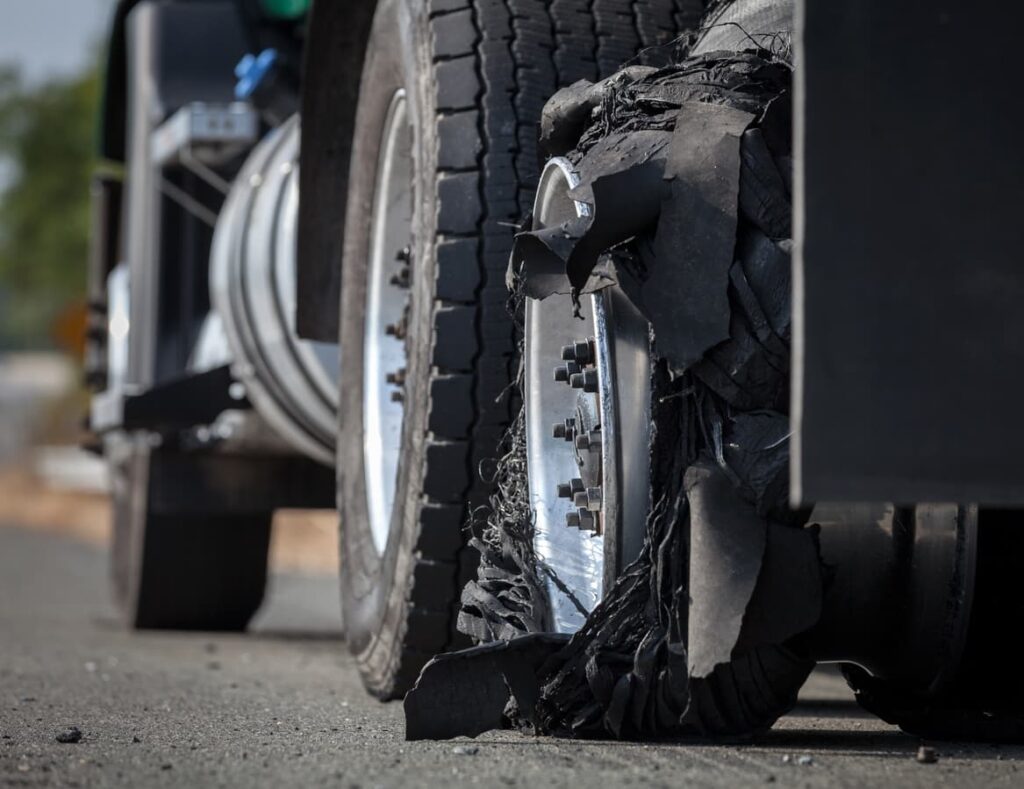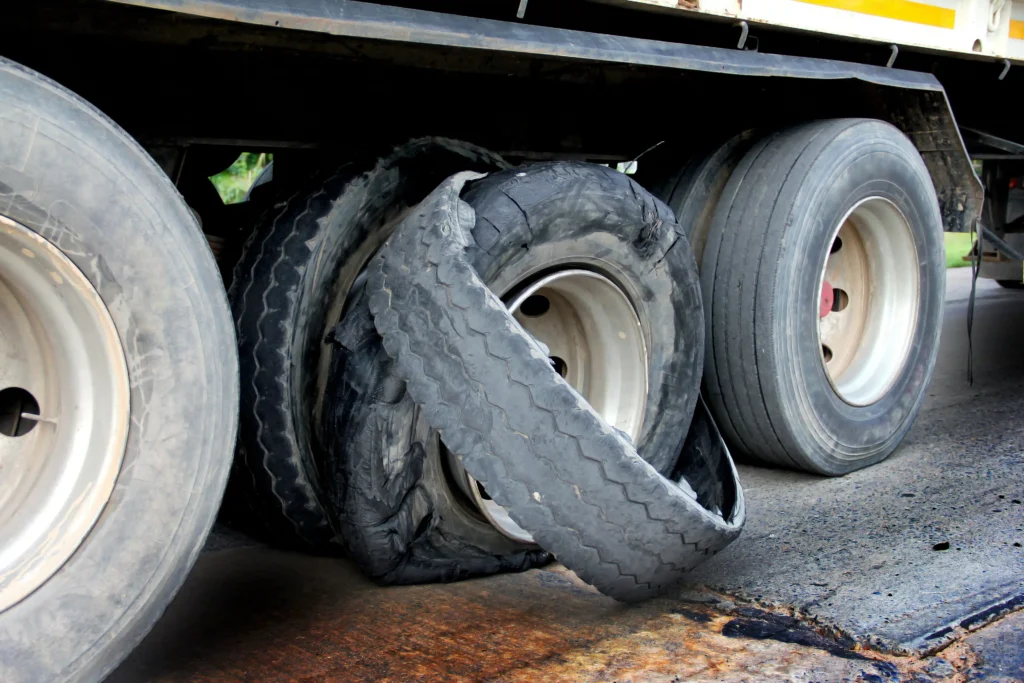Truck tire blowouts are a common occurrence during the summer months, and it’s no coincidence. Why do truck tires blow out more in summer? The combination of heat, road conditions, and the sheer weight of trucks creates a perfect storm for tire failures. Understanding why this happens can help truck drivers and fleet operators take preventative measures to reduce risks and improve safety.
In This Guide
Here are the main reasons truck tires are more prone to blowouts in hot weather:
1. Heat Causes Air Expansion in Tires
Tires are designed to operate within a specific pressure range. In hot weather, the air inside the tire expands due to increased temperatures. For every 10°F (5.5°C) rise in temperature, tire pressure increases by approximately 1-2 PSI. If the tire is already overinflated or worn, this additional pressure can push it beyond its capacity, leading to a blowout.
2. Increased Road Surface Temperatures
Asphalt absorbs heat from the sun, and during summer, road temperatures can soar well above 120°F (49°C). When a truck tire rolls over such hot surfaces for extended periods, the rubber becomes more pliable and susceptible to damage. This heat buildup can also accelerate wear and tear, making tires more vulnerable to sudden failure.
3. Heavy Loads and Overloading
Trucks often carry heavy loads, and overloading exacerbates the strain on tires. In hot weather, the added stress can lead to excessive heat generation within the tires, weakening their structural integrity. Overloaded tires are especially prone to overheating and blowouts, as they are already operating close to their maximum load capacity.

4. Poor Tire Maintenance
Tire maintenance is critical year-round, but it becomes even more vital in hot weather. Underinflated tires generate more friction with the road, causing excessive heat buildup. Conversely, overinflated tires are more rigid and less able to absorb impacts from road debris or potholes, making them more likely to blow out. Cracks, worn treads, and other signs of wear also increase the likelihood of failure during high temperatures.
5. Road Hazards and Debris
Hot weather often coincides with increased travel and road construction. Debris, potholes, and rough road surfaces can cause damage to truck tires, especially when they are already weakened by heat. A small puncture or crack can escalate into a catastrophic blowout when combined with the stresses of hot weather driving.
How to Prevent Truck Tire Blowouts in Hot Weather
- Regularly Check Tire Pressure
Monitor tire pressure frequently, especially during heat waves. Ensure the pressure is within the manufacturer’s recommended range, accounting for temperature changes. - Inspect Tires for Damage
Look for cracks, cuts, uneven wear, or bulges in the tire sidewalls and treads. Replace damaged or worn tires before hitting the road. - Avoid Overloading
Keep the truck’s load within the recommended weight limits. Overloading not only damages tires but also compromises the overall safety of the vehicle. - Drive at Moderate Speeds
High speeds generate more friction, which increases heat buildup in the tires. Driving at moderate speeds can reduce the risk of blowouts. - Use Quality Tires Designed for Heat Resistance
Invest in tires specifically designed to handle high temperatures and heavy loads. These tires often feature advanced materials and construction to withstand the rigors of summer driving.
Conclusion
Truck tire blowouts in hot weather are largely preventable with proper maintenance, careful driving, and adherence to safety guidelines. By understanding the relationship between heat and tire performance, truck drivers and fleet operators can take proactive steps to minimize risks, ensuring safer roads for everyone during the hot summer months.


Hi